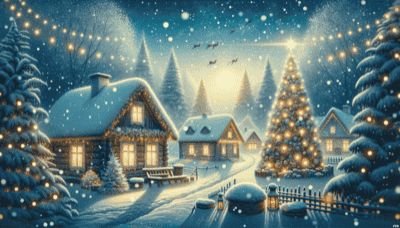We're here to help you keep count of the days to or since a date. Just click the button below and enter your chosen date to get started. Also choose the suggested days or search for a special day above #countingthedays

History and Traditions: Christmas Eve is one of the most important and cherished holidays in Estonia, deeply rooted in both Christian traditions and ancient winter solstice customs. Historically, it marks the birth of Jesus Christ, but many practices also hark back to pre-Christian pagan times when people celebrated the return of the light.
Traditions include:
Christmas Tree: Erecting and decorating a Christmas tree is a central tradition. The custom became popular in the 19th century and often involves family gatherings for decorating.
Jõuluvana (Father Christmas): Gift-giving is an essential part of Christmas Eve, with Jõuluvana delivering presents, usually after dinner.
Church Services: Many Estonians attend midnight church services on Christmas Eve to celebrate the religious aspect of the holiday.
Family Gatherings: Families come together to enjoy a festive meal. Traditional dishes often include roast pork, blood sausage, sauerkraut, potatoes, and gingerbread.
Cemetery Visits: A poignant tradition involves lighting candles at the graves of loved ones. This act creates a solemn but beautiful sight as cemeteries glow with candlelight through the night.
Peaceful Evening: Christmas Eve is also considered a time for peace and reflection. It's customary for all work to cease in preparation for the holiday.
Folklore and Magic: Some people still observe old folk customs such as predicting the future from lead pouring or grain throwing.
What People Do on This Day:
Estonians spend Christmas Eve preparing food, decorating their homes, visiting cemeteries to honor deceased relatives, attending church services, exchanging gifts, and enjoying quiet time with family. The day culminates with a traditional Christmas dinner which symbolizes abundance and gratitude.